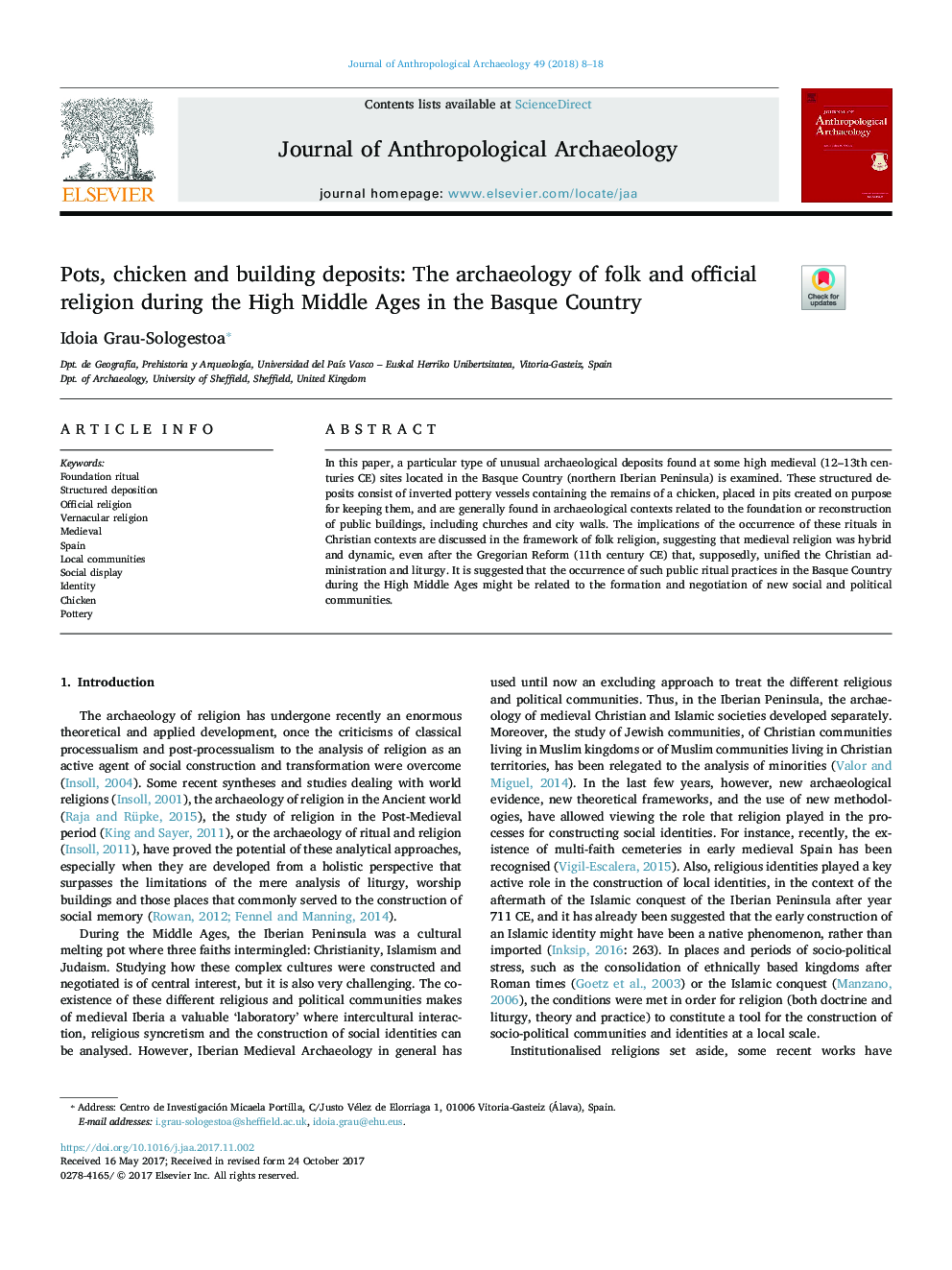| Article ID | Journal | Published Year | Pages | File Type |
|---|---|---|---|---|
| 7440418 | Journal of Anthropological Archaeology | 2018 | 11 Pages |
Abstract
In this paper, a particular type of unusual archaeological deposits found at some high medieval (12-13th centuries CE) sites located in the Basque Country (northern Iberian Peninsula) is examined. These structured deposits consist of inverted pottery vessels containing the remains of a chicken, placed in pits created on purpose for keeping them, and are generally found in archaeological contexts related to the foundation or reconstruction of public buildings, including churches and city walls. The implications of the occurrence of these rituals in Christian contexts are discussed in the framework of folk religion, suggesting that medieval religion was hybrid and dynamic, even after the Gregorian Reform (11th century CE) that, supposedly, unified the Christian administration and liturgy. It is suggested that the occurrence of such public ritual practices in the Basque Country during the High Middle Ages might be related to the formation and negotiation of new social and political communities.
Related Topics
Social Sciences and Humanities
Arts and Humanities
History
Authors
Idoia Grau-Sologestoa,
